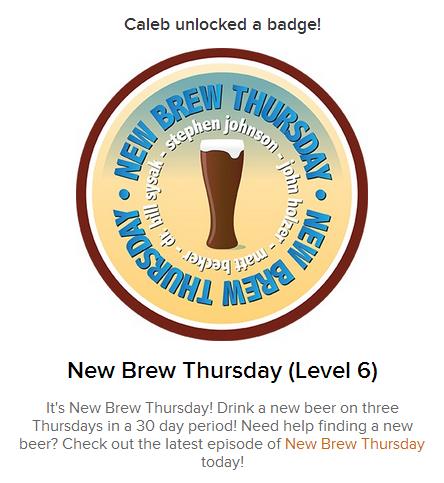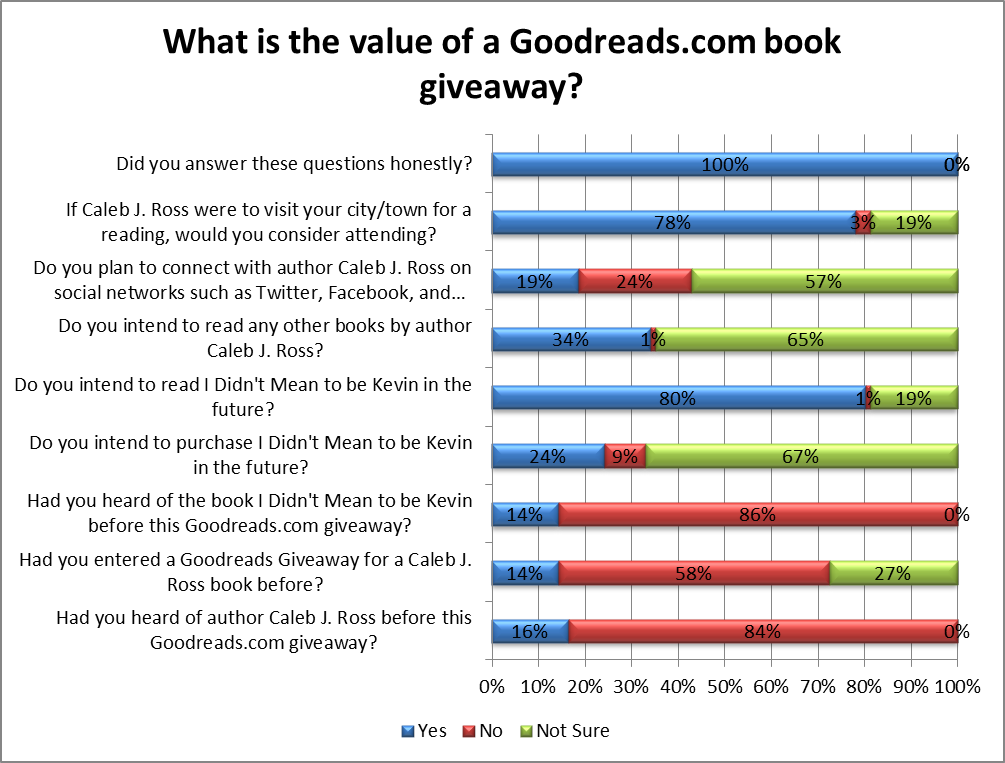A Must Read for Small Press Publishers Looking for Authors

Shortly after posting my “A Must Read for Writers Looking for Publication” article, which insisted that authors manage their expectations when working with small press publishers, Jason Stuart, Editor in Chief of Burnt Bridge, asked “how do we small presses show transparency to the authors, show solidarity with their goals, build trust, and mostly, offer true value?” It’s a fantastic question, to which I rattled off a few things, but have since given the question some additional much deserved thought.

Small presses, in contrast to large, established publishers, propose a fairly unique offer to authors. “Author,” says the small press, “we are each going to take a huge leap of faith with this relationship. I have little to no funding. Very little manpower. I have a day job that occupies most of my time. You, author, do not have an established fanbase. You are an unknowing in the world of publishing. Knowing these incredible odds against any measure of success, I propose that we commit to working together. What says you, author?”
“Wow,” says the author. “I’m going to give you years worth of work, in the form of a book, and you’re not going to promise anything other than publication and perhaps some evening hours time in return? I’m not so sure about this.”
The author is right to be suspicious. The publisher, in this arrangement, has much less to lose than the author. So why should the author agree to this relationship? What should the author require in order to establish a necessary level of comfort?
Motivation and Confidence
An author needs two things from a small press publisher: motivation and confidence.
Motivation (to sell books, to be an evangelist for the press)
Book sales will keep both the publisher and authors happy. But an author needs motivation to sell books. Large publishers give this by allocating dedicated marketing resources, placing books in brick-and-mortar stores, and the probability of monetary reward in the form of royalties.
Small publishers often don’t have the luxury of big marketing budgets. Small publishers must be more creative.
Confidence (that the press will still be around in a year, that the author is an important component in the overall health of the press)
Again, book sales will keep both the publisher and authors happy. But authors need to be confident that their marketing and writing efforts are going to pay off.
[divider2]

How can small press publishers ensure both motivation and confidence?
Small press publishers have a unique flexibility. Established legacy publishers are often so bloated with false self-importance and are blind to their faults that any change in the established processes–from book acquisition to marketing–is an impossible change (remember when eBooks first started gaining market share and legacy publishers dismissed the new medium?). Small press publishers aren’t governed by these same bureaucratic restrictions.
The ideas below are likely only possible for publishers willing to take chances (ie, small press publishers). If any small presses out there decide to try these things, please contact me and let me know the results, good or bad.
1. Communication
If you were a large press and could afford to give me a $10,000 advance on my novel, I’d be okay with not hearing from you for months at a time. The logic being that you wouldn’t spend $10,000 on a book only to forget about it. Small presses, however, cannot give $10,000 advances (or any advance, usually) so constant, personalized communication is extremely important in establishing author confidence.
How to incorporate communication into the author publisher relationship:
Monthly emails
Provide details about the status of the book. What promotional efforts are in place? If there are no promotional efforts to speak of on a monthly basis, then you as a publisher are failing.
“But we don’t have time to promote books” you say. Then either 1) cut back on the number of book in your catalog or 2) bring on additional resources to help. Marketing responsibilities should be shared by the author, yes, but in a world where authors can easily print and distribute their own books (and keep all the royalties), publishers MUST provide value. From the author’s perspective, why would I forfeit 80% of my potential profits (assuming I get 20% royalties) if the publisher isn’t doing at least 80% of the promotion?
Video chats
Video chats (Google+ Hangouts, Skype calls, etc) are a great way to stay involved with your authors. Additionally, video can be a window with which to better understand the personality of your authors which may in turn provide insight into how the author (and the books) can be marketed. If the author is extremely personable, maybe get the author more audio interviews or start a podcast or YouTube channel. Video chats can also be a way to brainstorm solutions to problems such as low sales, writer’s block, etc. Part business meeting, part therapy session.
Online author dashboard
This idea of an author dashboard will require more in-depth exploration, which I plan to accomplish with a future blog post. For now, think of an online author dashboard as a means of providing authors with real-time, full-transparency statistics regarding book sales and marketing efforts.
Also, I understand that a truly functional and actionable dashboard is something that no-budget small press publishers cannot afford, so file this idea in the dream category.
The dashboard would aggregate the following into a single place:
- Social data – trending for metrics such as Facebook likes, Twitter followers, YouTube subscribers and views, and more
- Promotion prompts – recommendations for promotional content based on a variety of factors. For example:
- A decrease in YouTube subscribers may initiate a prompt for the author to post a new video to keep viewers engaged.
- A monitored keyword alert (from services such as Replyz, InboxQ, Google Alerts, Mention, or Vocus) may initiate a prompt for the author to write a blog post answering specific user questions relating to the themes contained within the authors’ books.
- Marketing efforts by the publisher – dates and contacts for press releases, interview requests, and more
- Near real-time sales data – this may seem impossible, but assuming most small presses distribute via KDP (Kindle Direct Publishing) and CreateSpace, sales data is extremely easy to acquire. KDP and CreateSpace offer monthly exports of sales information in a very manageable .csv or .xlsx format. “But Caleb, CreateSpace has a publish-on-demand stigma that I don’t want to be a part of.” Okay, if you’re avoiding a solution as easy and streamlined as CreateSpace just because you want to adhere to some sense of ‘small press authenticity’ then you probably deserve to fail as a publisher. Why incur overhead when you don’t need to? Besides, CreateSpace can be set up so that most readers have no idea they are reading a book printed via CreateSpace (CreateSpace even has a matte cover finish option now).
2. Contracts
Perhaps the biggest area of opportunity for small press publishers is with the acquisition and contract phases of the publisher author relationship.
Here’s a crazy idea: implement a two-book minimum contract.
- How this satisfies motivation – When a publisher is expecting a second book from me, I’m motivated to deliver. Simple. Plus, a two-book deal has the added benefit of allowing me to sound really important by saying to my friends “sorry, I can’t go out tonight. I’m working on a deadline for my next novel.”
- How this satisfies confidence – If I know a publisher is so impressed with my writing that they are willing to contract me for two books, then I am much more willing to invest myself into the publisher and the publisher’s success. A true professional relationship–where both parties have something to gain and lose–is seeded by initial risk.
- How this helps the publisher – Knowing what’s coming makes planning and promoting much more streamlined. Imagine being able to reply to reviews for book #1 with something like “Glad you liked this book. You should definitely be on the lookout for Author McWriter’s next book, Cool Title, coming in 20xx.” This is also a great way to build a list of “Power Fans,” those readers who will go out of their way to promote future titles. Lastly, if publishers know they have to allocate resources for at least two books, they may be more selective about the books–and the authors–they decide to bring on. This selectivity is important. I know gatekeeping is a dirty concept among those authors who are anti-legacy publishers, but gatekeeping generally works; I shouldn’t have to pay to be a beta reader.
3. Payment
So, the author has signed a two-book deal with you. Confidence has been established. The author is motivated to sell. Great. Now, how can you maintain that confidence and motivation? Two words: payment consistency.
Payment schedule
No matter how small the royalties may be, monthly payments should be a de-facto practice among small presses. With direct deposits to bank accounts (via PayPal) being so easy and inexpensive there’s no reason not to coordinate monthly payments. Waiting 6+ months between royalty payment distribution is unacceptable.
- How monthly payments satisfy author motivation – As an author, the more often I see the physical proof of my sales efforts, the more confident I become that what I’m doing is (literally) paying off.
- How monthly payments satisfy author confidence – When I don’t hear from a publisher, especially one that may only be a few years old, I get nervous. Has the press failed? If so, why wasn’t I notified? Monthly payments are a way to reinforce the validity of the publisher.
A warning about advances
Never offer an advance in lieu of royalties. Not many publishers do this, but the ones that do need to realize they are shooting themselves in the foot. An advance is great. Royalties are great. Both are better. But ONLY and advance is a terrible idea. This completely removes the motivation on the part of the author to sell books. “I’ve already been paid,” says the author. “Since I don’t stand a chance of making any additional money, why the hell should I try to sell these books?”
Contributor copies given 6 months after the book is released [Added 2/9/2014]
This one is likely a bit more controversial. I argue that rather than give the author his 10 or so contributor copies during the book’s release the copies should instead be given away 6 months to 1 year after the book is released? Why? Often authors, rather than use contributor copies in self-promotion and marketing efforts, give the copies away to friends and family. However, friends and family are the single demographic that authors and publishers can count on to buy the book. Don’t ignore those sales (and the initial Amazon.com algorithm-based promotion that comes along with increases in sales velocity).
The controversy comes into play when one argues that the publisher is then using friends and family for book sales. “Using” is a harsh word, but essentially, yes, we do want to count on this demographic to purchase books.
4. Reward/Incentive
Rewards and other incentives are a proven-effective way to keep people motivated. Small press publishers could do well to adopt a few basic reward structures.
Bonuses (monetary or otherwise) when certain milestones are met
- Cash bonus at every x number of sales
- Book tour organized and paid for (maybe partially; tours are expensive) upon publication of the xth profitable book (3rd or 4th book, perhaps)
Royalty % increases for each successfully published book
An example of a reward-based tiered royalty structure:
- Book 1: 10% of cover
- Book 2: 15% of cover
- Book 3: 17% of cover
- Book 4: 20% of cover
- Book 5 and on: +2% up to 30%. Once the 30% limit is reached, other rewards kick in (higher sales bonus, more tour stops, etc.–afterall, a publisher can only offer so much in royalties before the press becomes unprofitable)
Badges
The badge mentality means that seemingly insignificant rewards can still provide motivation. Untappd is a good example. Untappd is an app that connects a community of beer drinkers. The user receives badges for a variety completed tasks such as drinking a specific number of unique beers, drinking on holidays, and drinking new beers on certain days of the week. It’s ridiculous, I know, but on Thursdays I’ll go out of my way to drink a new beer knowing that doing so will result in a “New Brew Thursday” badge.
Badges should be based on short, actionable accomplishments, rather than long-term goals (long-term goals should remain in the Bonuses and Royalty % Increases sections) and should not influence monetary payout. A few badge examples:
- First audio interview (and incremental tiers such as 5th audio interview, 20th audio interview, etc)
- First book-related YouTube video uploaded (and incremental tiers such as 5th video upload, 20th video upload, etc)
- First picture with a fan
- The Traveler Badge – Participating in a live reading x miles from home
Readers and authors not part of your press probably won’t care about these badges. I understand that. Badges perhaps should reserved for display on author profile pages (as part of the aforementioned dashboard) allowing all authors in the press’ stable to compare badges, while encouraging a bit of friendly competition as well. Alternately, perhaps badges can be publicly displayed as they would provide an opportunity for the author to blog about the story behind the badges’ acquisitions.

[quote]“But Caleb, I didn’t start my small press to get rich and quit my dayjob. I’m doing it for the love.”[/quote]
This is a very, very commendable stance. However, monetary motivations or no, you have to keep in mind two things: 1) your motivations might not necessarily be your authors’ motivations, and 2) without some type of structure set in place to guide your decisions, you’ll burn out (and let down your authors) much more quickly than you would like to.
1) Your motivations vs. your authors’ motivations. Even though you might not care about making money, your authors might care very much. If you are a true “for the love” publisher, meaning you don’t anticipate generating enough revenue to pay your authors, you need to be VERY EXPLICIT WITH THIS INFORMATION BEFORE AN AUTHOR SIGNS WITH YOU.
2) You need a decision-making structure. Remember MC Hammer? No. Okay, remember Spencer Pratt and Heidi Montag? No. Well, good. For the sake of my point just know that these three individuals had millions of dollars at one point in time, and now they have zero dollars. Why? Because their decision making processes were not structured very well. When one has millions of dollars of disposable income, making more money generally isn’t a top priority. Therefore, they spend, spend, and spend without a single thought about future proofing their lifestyle. As a small press publisher, if you make decisions based on ensuring a future then you’ll be around a long time. Now, “ensuring a future” is a very nebulous parameter, which is why if you instead say you want to make decisions based on “being profitable,” the decisions become more concrete and easier to justify. This doesn’t mean you MUST be profitable. It simply means that by applying a concrete structure to your decision making, you’ll make yourself, your authors, and your readers much happier in the long run because you’ll be around much longer.
[divider2]Thoughts from small press publishers
I invite all small press publishers to comment, correct, suggest, change, and generally contribute as willing and able. I’ve been publishing with small presses for about 10 years. Some experiences have been great. Some have been terrible. I feel I have a worthwhile perspective on the topic, but I welcome all feedback.
More importantly, if you are a small press publisher and you decide to enact any of the ideas above, please let me know! I would love to hear about any successes or failures. Contribute to the comments section below.
Important takeaways
- Authors must be motivated to sell books and must be confident that their efforts will pay off
- Small press publishers should consider, as part of their core publication model, a level of communication, contract flexibility, payment consistency, and transparency that far exceeds what large, legacy publishers offer
- If authors aren’t confident that they are in the best of hands, the publisher is failing them
- As a small press publisher you may not care much about money, but perhaps your authors do


Write more, thats all I have to say. Literally, it seems as though you relied on the video
to make your point. You definitely know what youre talking
about, why waste your intelligence on just posting videos to your site when you could
be giving us something informative to read?
Thanks for the nice words. Honestly, it just comes down to time. I have only enough time to make a certain amount of content. Usually, the video format is just more fun for me, though I plan to do more text posts in the future.